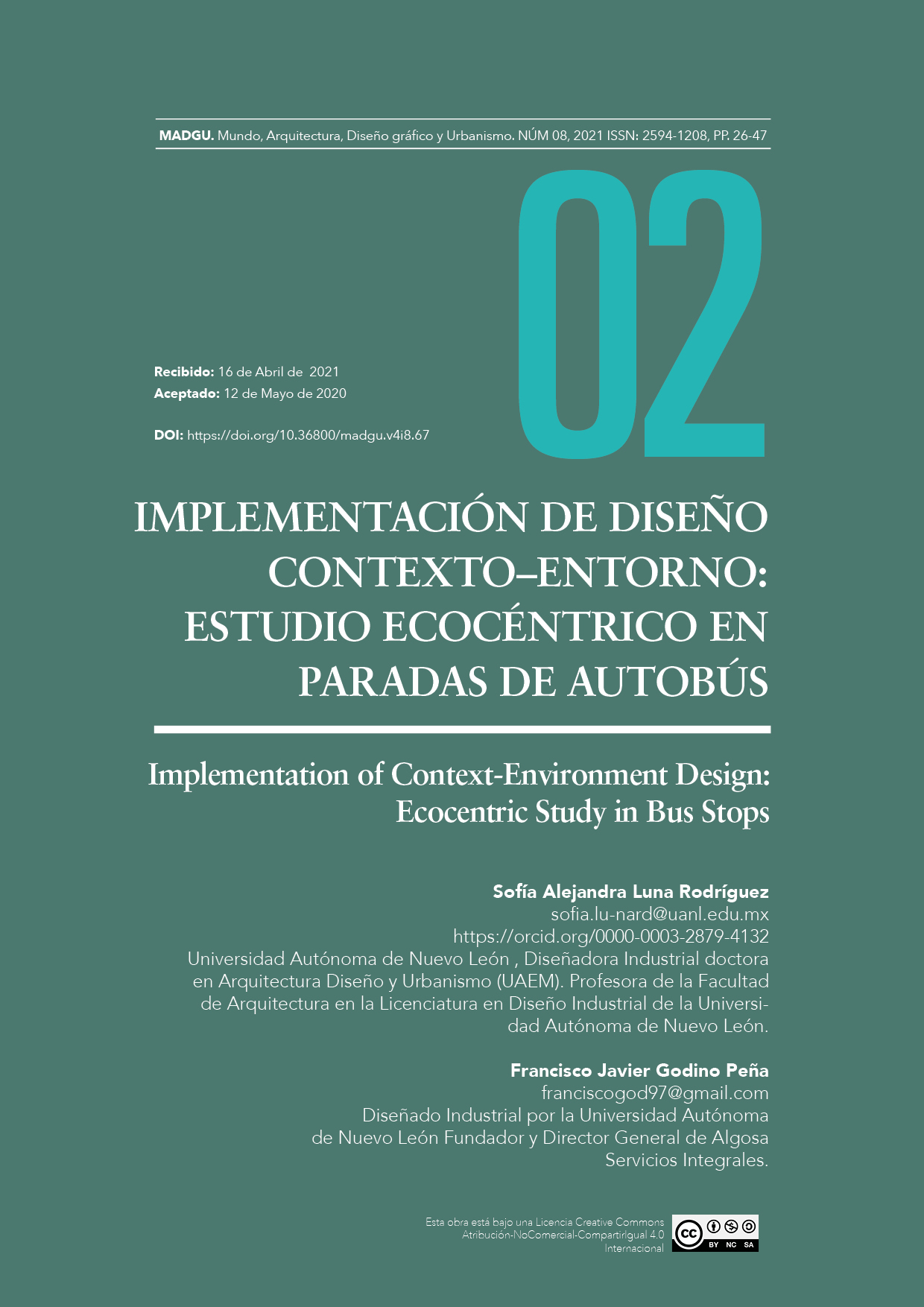Implementation of Context-Environment Design: Ecocentric Study in Bus Stops
DOI:
https://doi.org/10.36800/madgu.v4i8.67Keywords:
bus stop, ecocentrism, design, sustainableAbstract
Nowadays, anthropocentric design theories explain that the empathic and user-centered side has been a fundamental part in the creation of products, services, and systems over the years, however, the results do not manage to be sufficiently competent to consider external factors to the user such as natural environments, contexts external to the human, trends, and relationships to futurology. This is why implementing broader approaches and considering valuable aspects such as biology, sociology, the study of trends, anthropology, and the environment, together with the human-empathic factor, a complete design result can be achieved.
This project was born from the concern to apply new approaches to design methods for the creation of products, spaces, and systems that coexist in the daily life of the human being, through a methodology based on the context-environment called "Generation of oriented ideas to ecosystems”, in this case, for a bus stop in the City of Monterrey, Nuevo León, Mexico.
The selected design concept presents the relevant characteristics defined from the generation of ideas oriented to ecosystems and complying with the State Technical Standard for Sidewalks of Nuevo León, allowing a complete design based on the objectives of the context to which it is directed.
Downloads
References
Alexander, C. (1964). Notes on the Synthesis of Form. Cambridge: University Press.
Bustos, M. (2020). Las Mega-tendencias para la década del 2020. Recuperado de: https://www.elevate.com.mx/las-mega-tendencias-para-la-decada-del-2020/
Godino, F. (2019). Implementación de Concreto Fotoluminiscente en entornos urbanos y la influencia del ecocentrismo en el diseño industrial (tesis de pregrado). Universidad Autónoma de Nuevo León, Monterrey, México.
Haberfellner, R. (1972). Systems Engineering: Fundamentals and Applications. Basilea: Birkhauser.
León, G. (2020). Norma Técnica Estatal de Aceras de Nuevo León. Monterrey, Nuevo León, México.
Luna, S. (2018). Generación de conocimiento de los ecosistemas: Innovación de la investigación impulsada por el contexto dentro del proceso de diseño centrado en el ser humano. Monterrey, Nuevo León, México.
Oxman, N. (2016). Towards a material ecology. World Economic Forum. Recuperado de: http://www.weforum.org/agenda/2016/01/towards-a-material-ecology
Wong W. (2002). Fundamentos del diseño bidimensional y tridimensional, Barcelona: Editorial Gustavo Gili.
Zepeda, G. (2017). Diseño Contexto-Entorno: Diseño por contexto a través del ecocentrismo para su aplicación industrial, Memorias del Seminario Internacional de Investigación en Diseño, 8, 654-663.

Downloads
Published
How to Cite
Issue
Section
License
Copyright (c) 2021 Sofía Luna Rodríguez, Francisco Javier Godino Peña

This work is licensed under a Creative Commons Attribution-NonCommercial-ShareAlike 4.0 International License.
Las opiniones expresadas por los autores no necesariamente reflejan la postura del editor de la publicación. Esta obra está bajo una Licencia Creative Commons Atribución-NoComercial-CompartirIgual 4.0 Internacional.








